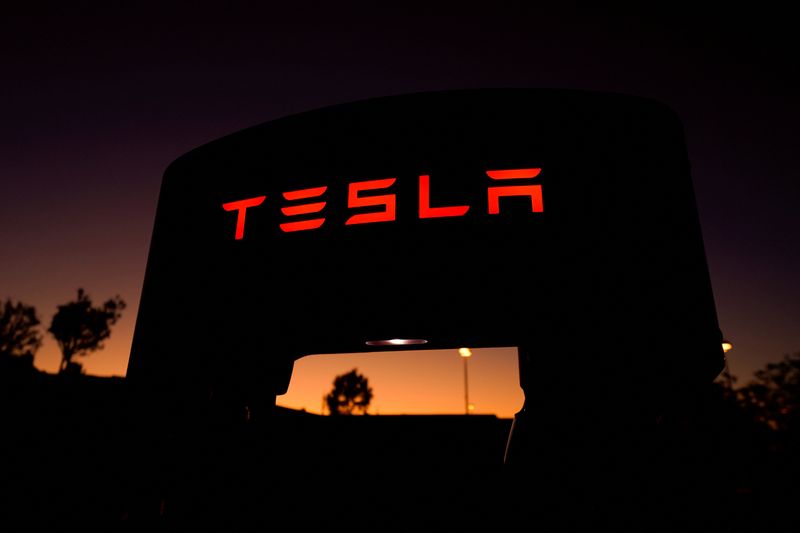By Daniel Wiessner
(Reuters) - A federal judge in California on Thursday appeared poised to reject Tesla (NASDAQ:TSLA)'s bid to toss out a U.S. agency's lawsuit accusing the electric carmaker of tolerating rampant harassment of Black workers at its Fremont, California assembly plant.
U.S. District Judge Jacqueline Scott Corley in San Francisco during a hearing repeatedly disagreed with claims by Tesla's lawyers that the U.S. Equal Employment Opportunity (EEOC) failed to include any facts in its lawsuit backing up its claim of pervasive unlawful race bias.
The EEOC in a 10-page lawsuit filed last year said that from 2015 to the present, Black workers at the Tesla plant have routinely been subjected to racist slurs and graffiti, including swastikas and nooses, and Tesla has failed to investigate complaints.
Tesla, whose CEO is billionaire businessman Elon Musk, is facing similar claims in a separate lawsuit by a California civil rights agency and a class action on behalf of 6,000 Black workers. The company has denied wrongdoing in all three cases.
Raymond Cardozo, a lawyer for Tesla, told Corley during the hearing that the EEOC had not met a requirement of showing that its claims were "plausible" and can move forward. The lawsuit did not include the names of workers who allegedly faced discrimination or details about when or where in the factory the misconduct occurred, Cardozo said.
It is not plausible "when someone is saying that every single person not of that race, from 2015 to 2024, discriminated against every single (Black) person," Cardozo said.
"That's not what it's saying," the judge replied. "It's saying this racism ... was ubiquitous such that it created a hostile environment for Black workers. Maybe it's untrue, but why doesn't that state a claim?"
Corley cited a paragraph in the lawsuit that states that an unidentified worker told the EEOC that a highly offensive racial slur was "both his white co-workers' and supervisors' preferred pronoun on the production line."
"That you don't know his name doesn't mean it's not plausible," the judge said, adding that Tesla will be able to obtain more information during the discovery process leading up to a trial.
Cardozo said that without more details, Tesla could not attempt to address the alleged discrimination.
Corley seemed unmoved.
"I'm not persuaded at all, I have to say," the judge said.

Corley did not say when she would issue a ruling. The judge also seemed skeptical of Tesla's bid to alternatively pause the case pending the outcome of the class action and the lawsuit by the California agency.
The EEOC's lawsuit seeks unspecified compensatory and punitive damages for an unspecified number of Black workers, along with an order requiring Tesla to overhaul its policies prohibiting discrimination and retaliation.